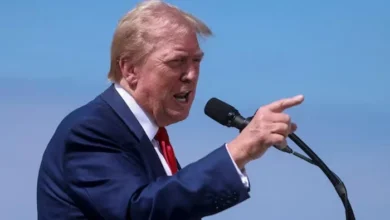In a surprising turn of events, Donald Trump, the former President of the United States, has publicly acknowledged his loss in the 2020 presidential election, a statement that starkly contrasts with his previous narrative of widespread voter fraud and victory. This admission, made during an interview on C-SPAN, has sent ripples through political circles and the public, igniting discussions across platforms like X (formerly Twitter) where reactions range from shock to vindication.
The Admission
Trump’s acknowledgment came in an off-the-cuff remark, where he mentioned losing the election by “a whisker,” a stark departure from his consistent claims of election fraud. This moment, captured by observers and quickly disseminated across social media, has been interpreted in various ways. For some, it’s a long-awaited admission of reality; for others, it’s seen as a slip rather than a formal concession.
Legal and Political Ramifications
Legal Implications: Trump’s admission might have legal repercussions, especially in light of ongoing investigations and legal battles concerning his actions post-election. Figures like Jack Smith, the special counsel, might take note of this admission, although its direct impact on legal proceedings remains to be seen.
– **Public Perception**: The admission has not only affected Trump’s supporters, who have long believed in the election fraud narrative, but also provided ammunition for his critics. This could influence the political landscape, particularly in how Trump’s narrative on the election is viewed moving forward.
– **Media Reaction**: Media outlets and commentators on platforms like X have been abuzz with this news, with analyses ranging from the psychological to the political, questioning what this means for Trump’s image and the GOP’s future.
**Contextualizing Trump’s Statement**
Trump’s acknowledgment doesn’t occur in isolation. It follows years of legal challenges, where his claims of election fraud were largely dismissed, and amidst ongoing investigations into his conduct post-election. However, his admission was not framed as a concession but rather as an offhand remark, which might explain why it hasn’t led to widespread media coverage as a formal concession.
**Political Impact**
While this might not sway his most ardent supporters, it provides critics with tangible evidence of Trump’s acknowledgment of defeat, potentially affecting his political image. This could have implications for the 2024 presidential race, where Trump’s narrative on election integrity has been a significant talking point.
**Conclusion**
Trump’s admission of losing the 2020 election, however fleeting or unintended, marks a significant moment in American political discourse. It underscores the complexity of Trump’s relationship with the 2020 election results, where his public statements have often contradicted legal realities. While this admission might not fundamentally change the legal or political landscape overnight, it adds a new layer to the ongoing saga of Trump’s post-presidency narrative, stirring discussions on truth, accountability, and the nature of political leadership in the modern era.







